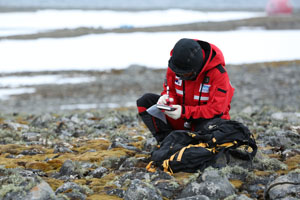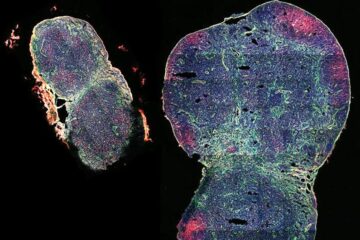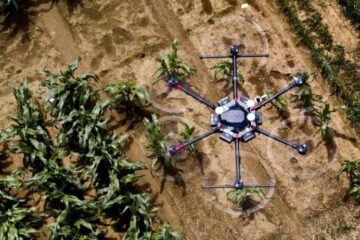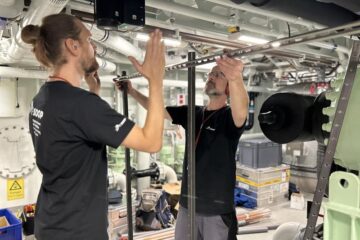Survival Artists in the Antarctic

Photo: KOPRI
In order to improve our understanding of the impact climate change has on plant life in the Antarctic, the Rector of the University of Freiburg/Germany, Prof. Dr. Hans-Jochen Schiewer, and the President of the Korea Polar Research Institute KOPRI, Dr. Ho-Il Yoon, have just signed a co-operation agreement on moss research.
Biologists Prof. Dr. Ralf Reski from the University of Freiburg/Germany and Dr. Hyoungseok Lee from the Korea Polar Research Institute KOPRI/South Korea will join forces to decipher the genome of an Antarctic strain of the moss Sanionia uncinata and compare it to the genome of the model moss Physcomitrella patens, which cannot grow in Antarctica.
The project will be funded by KOPRI’s “Polar Genomes 101 Project”. “We are excited about this new opportunity and expect new insights into plant adaptation to harsh environmental conditions,” says Reski.
Best known for its penguins, Antarctica is also home to about 100 moss species, which form the dominant plant life on this continent with its freezing temperatures, poor soil quality, lack of moisture and little sunlight. So far it is not known how plants can survive such harsh conditions and how man-made global warming will affect plant life in the Antarctic.
“We will search for as yet unknown signalling mechanisms in the moss that have evolved over millions of years to make life in remote and hostile places possible.”
Ralf Reski holds the Chair of Plant Biotechnology at the Faculty of Biology of the University of Freiburg/Germany. He is a founding principal investigator of the Cluster of Excellence BIOSS Centre for Biological Signalling Studies and has developed the moss Physcomitrella from scratch to a model organism for basic biology and plant biotechnology over the last three decades.
Contact:
Professor Ralf Reski
Plant Biotechnology
Faculty of Biology
University of Freiburg
Germany
Phone: +49 761 203 6968
E-Mail: pbt@biologie.uni-freiburg.de
Weitere Informationen:
Media Contact
All latest news from the category: Life Sciences and Chemistry
Articles and reports from the Life Sciences and chemistry area deal with applied and basic research into modern biology, chemistry and human medicine.
Valuable information can be found on a range of life sciences fields including bacteriology, biochemistry, bionics, bioinformatics, biophysics, biotechnology, genetics, geobotany, human biology, marine biology, microbiology, molecular biology, cellular biology, zoology, bioinorganic chemistry, microchemistry and environmental chemistry.
Newest articles

Expanding a lymph node, boosting a vaccine
A biomaterial vaccine enhances and sustains lymph node expansion following vaccination, boosting anti-tumor immunity in an animal model. Each one of us has around 600 lymph nodes (LNs) – small,…

AI to Make Crop Production More Sustainable
Drones monitoring fields for weeds and robots targeting and treating crop diseases may sound like science fiction but is actually happening already, at least on some experimental farms. Researchers from…

Cruise Ship as Data Collector
New Approaches in Ocean Observation… Scientific research – not only confined to dedicated research vessels but also from non-scientific vessels and marine infrastructures. This is one of the ideas promoted…





















